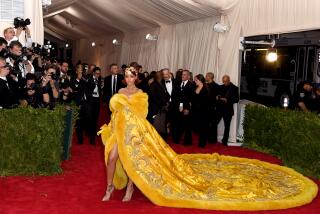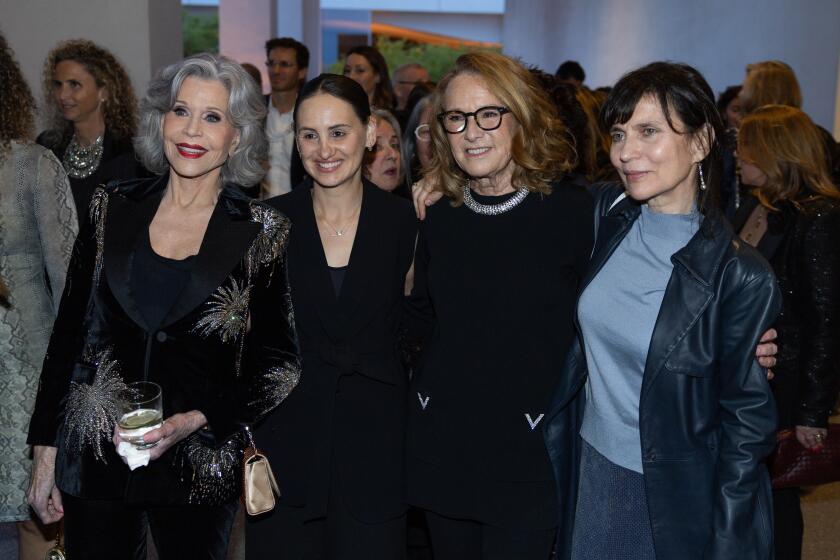Mahler’s Songs Speak Louder Than ‘Zarathustra’
For all the bombast of its famous opening, Richard Strauss’ “Also Sprach Zarathustra” (Thus Spake Zarathustra), inspired by Friedrich Nietzsche’s famous philosophical overview of the human race, is not an unnuanced celebration of the Superman. The German philosopher’s concept of this most evolved of creatures was as a reclaimer of moral values. And in his half-hour tone poem, Strauss interprets Nietzsche’s concept of a will to power as an elemental and ever-ongoing struggle between humanity and nature. The score ends quietly, indeterminately, wisely uncommitted to one side over the other.
Still, under it all, the uglier side of the Superman, which the Nazis interpreted as the blond, muscled Aryan hero, also lurks, especially if one ponders Strauss’ own later enigmatic dalliance with the National Socialist Party. A listener caught only the faintest hint of that gauche golden giant in Esa-Pekka Salonen’s sleek, steely, Modernist interpretation of “Zarathustra,” which opened the Los Angeles Philharmonic program at the Hollywood Bowl on Tuesday night. But it was there, and it was enough to make the Bowl debut of German baritone Thomas Quasthoff--who was a soloist, along with the Finnish mezzo-soprano Lilli Paasikivi, in songs from Mahler’s “Des Knaben Wunderhorn” (The Youth’s Magic Horn)--all the more striking and meaningful.
Had Quasthoff been born while the Nazis were in power, he might not have survived given his thalidomide-induced deformities. But in the world of music, it is hard to think of a more effective example of the triumph of man over nature, the triumph of the will. Quasthoff is a great singer. He has a commanding, beautiful voice. He has the rare quality of bringing every word he sings to vivid life. He is a wondrously expressive stage presence.
Most extraordinary of all, he has that rare Sinatra-like ability to make you think that he is singing to you alone. And talk about the Nietzschean will to power, he even managed the Sinatra trick across the expanse of the Hollywood Bowl, amplification and all.
As one of the programs for the Philharmonic’s upcoming European tour, the conjunction of the Strauss symphonic poem and the Mahler songs is obviously intended to be intriguing. The two works were written within a few years of each other at the end of the 19th century by young composers who knew each other, were both influenced by Nietzsche, were both considered avant-garde at that time. But their temperaments were hardly compatible. The affable Strauss wrote in his diary that there was hope since the “Jew Mahler could still find elevation in Christianity.” The neurotic Mahler called Strauss “the great opportunist.”
Strauss’ “Zarathustra”--especially when its protagonist, the prophet Zoroaster, comes down from the mountain and finds his pleasure in the homey Viennese waltz style--can seem faintly silly. But it contains sensuously complex writing for the orchestra, and a bewitching harmonic ambiguity. Salonen emphasized these bold, ambiguous, complex qualities in a performance that could only partially work at the Bowl. The rumble of a small plane drowned out the low instrumental rumble at the beginning and the amplification did unpleasant things to winds and brass and hardened string tone.
Like “Zarathustra,” the dozen Mahler songs, which are based on often-macabre German folk tales, underscore the Nietzschean preoccupation with humanity’s relationship to the natural and supernatural worlds. But Mahler was far more fatalistic than the easygoing Strauss and his sense of irony considerably more developed.
It is maybe a little unfair that Strauss on Tuesday didn’t have the advantages of Quasthoff or Paasikivi, an impressively lustrous mezzo who was making her American debut on this occasion. Both singers were simply ideal. Whether bringing chills to the spine with his eerie tra-la-las in a march of dead soldiers, hilariously animating the he-haws of an ass, or picturesquely describing the quirks of St. Anthony preaching to the fish, Quasthoff easily seized the dramatic essence of each song.
In the numinous “Urlicht” (Primeval Light), a song about transcending mortal pain, Quasthoff created one of those exceedingly rare spellbinding moments of stillness, where music and the immensity of the sky actually do make this normally troublesome venue a magical bowl.
Paasikivi’s debut was also of note. There are many fine mezzos these days, but there can never be too many. Most of her songs were those with dark emotions, and her lush intensity and warmth seemed to particularly play off the lavish colors of Mahler’s orchestral writing. The Philharmonic, aglow under Salonen, clearly knew, with such singers, it could do no less.
More to Read
The biggest entertainment stories
Get our big stories about Hollywood, film, television, music, arts, culture and more right in your inbox as soon as they publish.
You may occasionally receive promotional content from the Los Angeles Times.







